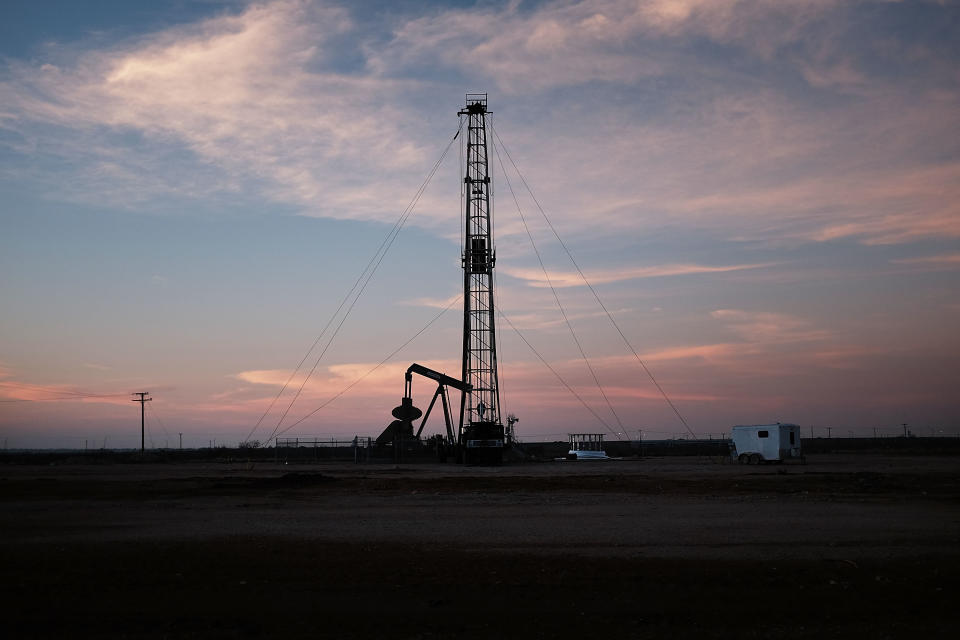Why the US shouldn’t cheer the crash in oil prices like Trump just did
Oil prices crashed nearly 25% on Monday to mark the greatest daily drop in price for the commodity since 1991 during the Gulf War.
A standoff between the Saudi-led Organization of the Petroleum Exporting Countries (OPEC) and its allies this weekend sparked the selloff after Russia refused to agree to oil production cuts. In turn, Saudi Arabia moved to produce oil at cut-rate prices fueling oil’s drop to its lowest price levels since 2016.
The impact of oil’s collapse has far reaching effects on the U.S. economy, including everything from cheaper gasoline prices at the pump to cheaper input costs for many of America’s manufacturers. But since the U.S. became a net exporter of oil products in November 2019, the overall net effect of oil prices dropping so drastically so quickly is not positive.
President Trump was quick to point out Monday, a drop in oil prices will inevitably mean cheaper gas prices for Americans. According to GasBuddy, the national average for a gallon of gas Monday dropped below $2.36, down more than 5% from two weeks ago, and was expected to fall farther by the weekend. In total, Morgan Stanley estimated the drop in gas prices could wind up adding a collective $125 billion in extra disposable income to consumer wallets.
Good for the consumer, gasoline prices coming down!
— Donald J. Trump (@realDonaldTrump) March 9, 2020
The overlooked problem, however, has to do with why OPEC and Russia are dealing with the issue of coordinating production cuts in the first place. Domestic oil producers in the U.S. have increasingly been growing operations with the rise of shale production to steal market share away from traditional energy suppliers. Due to the shale boom, the U.S. posted its first month as a net oil exporter in 70 years in November 2019, when it exported roughly 90,000 more barrels than it imported. That growth has not gone unnoticed by OPEC players who were hoping to reach a coordinated production cut to stabilize prices, before resorting to dropping prices across the board.

“You’ve got to remember, what Saudi Arabia and Russia are doing is trying to put the shale producers out of business in the U.S. because they are the ones who are increasing the world’s supply,” noted B. Riley Wealth Management Chief Investment Strategist Paul Dietrich. Lower oil prices combined with U.S. producers’ relatively higher costs of production raise the likelihood of a drop in shale investment.
Further, since the U.S. oil production industry has grown so large, Morgan Stanley posits that the pain of lower oil prices is likely to outstrip whatever positive boost cheaper gas prices might provide to U.S. consumers, especially if coronavirus fears keep people from spending whatever savings are accrued at the pump.
“Putting it all together, we believe the cumulative decline in oil prices since the beginning of the year, if sustained, is enough to reduce real GDP growth by about 15 to 35bp in the near term,” Morgan Stanley’s research team wrote in a new note, adding that coronavirus fears dampen how Americans might look to spend any additional gas savings.
“There’s yin and yang in what’s happening here for the U.S.,” Recon Africa CEO Jay Park tells Yahoo Finance. “For Saudi Arabia and for Russia, who rely on oil and gas exports for 80% to 90% of their foreign exchange, this is a challenging situation and that’s why I think it’s fair to predict it’s not going to continue that long.”
Zack Guzman is the host of YFi PM as well as a senior writer and on-air reporter covering entrepreneurship, cannabis, startups, and breaking news at Yahoo Finance. Follow him on Twitter @zGuz.
Read the latest financial and business news from Yahoo Finance
Read more:
Illinois becomes the latest state to legalize marijuana, these states may follow
Follow Yahoo Finance on Twitter, Facebook, Instagram, Flipboard, SmartNews, LinkedIn, YouTube, and reddit.